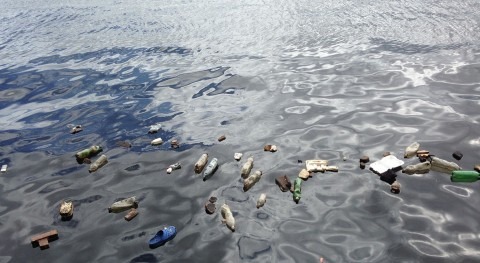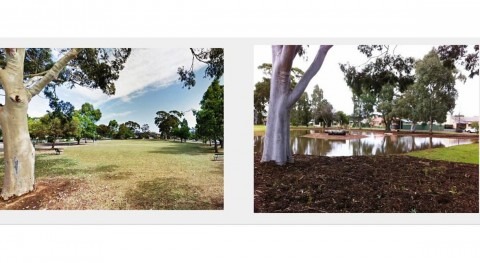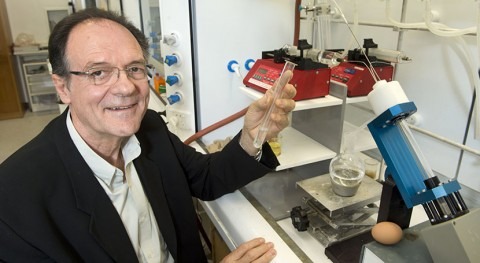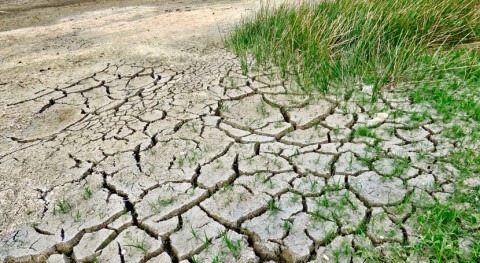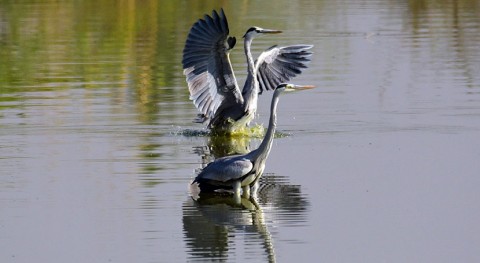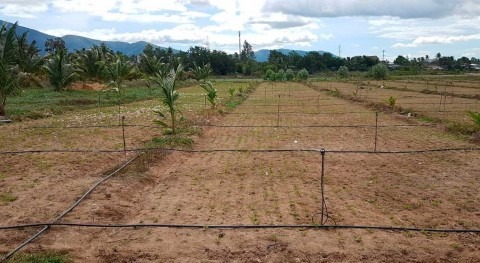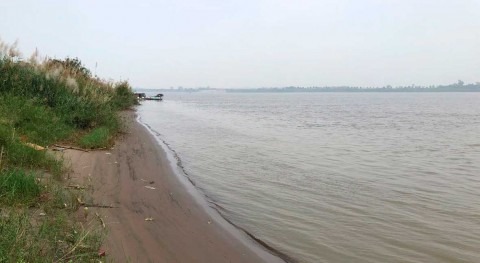Ahead of World Water Day, new studies at Flinders University provide valuable insights into removing toxins from polluted waterways and improving filtration at urban wetlands.
One study found a wetland plant capable of reducing PFAS in soil and water, and another looked for better urban wetland water flow management during summer.
In a glasshouse experiment, the first study found a common Australian native wetland plant capable of tolerating and reducing major contaminant Perfluoroalkyl and polyfluoroalkyl substances (PFAS).
"We found the wetland plant Juncus sarophorus has a high tolerance to PFAS and capable of overall PFAS removal rates between 9% and 11% at a time, which could be increased with floating reed beds in the water column. It also is effective at accumulating and transferring PFOA and PFHxS from the soil to an above-ground vegetation biomass," says Flinders University hydrogeologist Dr. Ilka Wallis, from the National Center for Groundwater Research and Training whose research covers pollutants and recharge of aquifers.
"Together with its high growth rate, this plant appears to be a suitable candidate for phyto-extraction of short-chained PFAS compounds, but less effective at removing PFOS owing to this compound's long chain-lengths and ability to be absorbed by soils."
PFAS has been detected globally in a wide range of environments, there is an urgent need for effective remedial treatment solutions at the field scale.

Credit: Flinders University
"Phyto-remediation presents a potential remediation strategy for PFAS that would allow efficient and cost-effective remediation at large scales," says co-author and environmental health researcher Flinders University Professor Howard Fallowfield.
In another article in Science of the Total Environment, Flinders University researchers returned to a popular suburban constructed wetland to conduct in-depth studies of water filtration efficiency by existing aquatic plants (macrophytes) and contaminant accumulation at various locations during hotter, drier summer months.
"The spatial assessment of the Oaklands Park wetland was one of the first studies of nutrients and contaminants in constructed wetlands macrophytes as a performance indicator for wetland functionality and management," Professor Fallowfield says.
The reed beds and water were analyzed for nutrient and contaminant accumulation in-situ at the stormwater-fed wetland and water remediation site in the southern suburb of Adelaide, South Australia. Macrophytes were sampled at 36 sites and water at 46 sites selected by a systematic grid according to their location from inflow for each site. A total of 144 stem and root samples were checked for carbon, nitrogen and trace elements and 183 water samples for the same elements, ammonia and total suspended solids.
Results showed higher concentrations of water chemistry but reduction in macrophyte health and suspended solids from reed filtration with distance from the inflow as water flow slowed down during summer.
"Our study highlights the need for wetland managers to adjust design, water flow and vegetation control to better manage nutrients and contaminants with distance from inflow, particularly during the drier months," says Ph.D. candidate Nick Wilkins.
"These issues with flow regimes obviously affect macrophyte water filtration performance, which can be further investigated to improve constructed wetland health and performance elsewhere in the world," he says.
Efficient filtration and removal of nitrogen, carbon, phosphorus and contaminants from stormwater, agricultural runoff and industrial wastewater will reduce the range of potentially damaging pollutants discharged into the surrounding environments and improve water quality remediation techniques at vital constructed wetlands in urban and other recreational settings.





